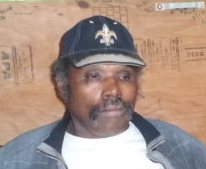It is still incredible and horrifying to think that in our town — in Eureka, in October 2011 — a man was murdered in cold blood because of his race. It should be incredible and horrifying, and let’s hope it continues to horrify and inspire incredulity for many years to come.
Despite the fact that his accused murderers are violent white supremacists, until yesterday there was at least a little bit of reason to question whether the killing of Eureka resident Reginald Clark was directly related to the color of his skin. But yesterday David Pedersen telephoned The Oregonian and erased any doubt.
“I felt that we could use another vehicle, but that this time we’d kill two birds with one stone so to speak and target a non-white,” he told a reporter. “The fellow was killed primarily because of who and what he was, but also due to the fact that we could’ve used another vehicle. (We actually ended up not even using his vehicle.)”
Tomorrow night from 6:30 to 9:30 p.m., you should, if at all possible, get yourself to the Eureka Boys & Girls Club at the corner of Harris and J streets for a community forum entitled “No Hate Here” — if for no other reason, then simply to publicly register that you consider the murder of our neighbor a monstrosity and a crime against us all.
Poster here. Press release follows.
You are invited to participate this Saturday, October 22nd, in a public event, titled “No Hate Here.” This event will provide a space for a community response to the murder of local resident Reginald Alan Clark, 53, an African American, October 4, 2011 and Cody Myers in Oregon. Both were killed by white supremacists who were later arrested on their way to Sacramento to “kill more Jews.” These murders, as we know, are part of a broader, although often ignored, pattern of bias and hate-based ideas, discrimination and violence in our local, national and global community
“No Hate Here” will allow people to express their fears and concerns, to understand the links between different forms of bias and the increase of attacks in periods of economic crisis, as well as share tools with other community members for empowerment, safety, and the strengthening of community. By coming together we can demonstrate our common dedication to creating and living in a community (and a world) built on compassion, nonviolence and justice.

CLICK TO MANAGE